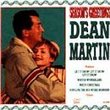| All Artists: Hector Berlioz, John Nelson, Orchestre National de France, Gregory Kunde, Patrizia Ciofi, Joyce DiDonato, Jean-Francois Lapointe, Laurent Naouri, Renaud Delaigue, Choeur De Radio France Title: Berlioz - Benvenuto Cellini Members Wishing: 0 Total Copies: 0 Label: Virgin Classics / EMI Release Date: 1/11/2005 Genre: Classical Style: Opera & Classical Vocal Number of Discs: 3 SwapaCD Credits: 3 UPC: 724354570629 |
Search - Hector Berlioz, John Nelson, Orchestre National de France :: Berlioz - Benvenuto Cellini
 | Hector Berlioz, John Nelson, Orchestre National de France Berlioz - Benvenuto Cellini Genre: Classical
This recording presents--almost--Berlioz's original thoughts on this very complicated opera (which went through more than a dozen versions, with additions and subtractions, in the composer's lifetime), although conductor J... more » |
CD DetailsSynopsis
Amazon.com This recording presents--almost--Berlioz's original thoughts on this very complicated opera (which went through more than a dozen versions, with additions and subtractions, in the composer's lifetime), although conductor John Nelson also adds an aria or two Berlioz later added, making it somewhat different from the version recorded by Philips under Sir Colin Davis a little over 30 years ago. If I had to choose one of these two superb performances, it would be this: the opera's odd rhythms are more strongly underlined by Nelson, the whole work seems more lively, and the comic moments are genuinely funny. And the singing is superb, with Patrizia Ciofi a simply great, light-toned Teresa, Gregory Kunde tackling the title role and singing as impressively as Gedda did for Davis, and Joyce di Donato singing Ascanio's music as well as you'll ever hear it. The darker-voiced roles are equally well taken, with Laurent Naouri's Balducci particularly vivid. The orchestral playing, choral singing, and ensemble work and sonics are first rate. This is a superb recording, presenting Berlioz's odd masterwork brilliantly. --Robert Levine Similarly Requested CDs
|
CD ReviewsExcellent recording of an underperformed work Steven Muni | Sutter Creek, CA USA | 01/28/2005 (5 out of 5 stars) "Berlioz' Benvennuto Cellini was a critical and commercial failure in its day, and even the later revision was not greated with much enthusiasm. It lay unperformed for decades, until 1972. This latest version uses the original Paris Opera version, restoring lots of great music to the revised version. This opera has wonderful orchestral music as well as great arias and marvelous choruses, and conductor John Nelson brings out the best in all his artists--particularly necessary here, as this opera requires an extremely high degree of technical expertise from singers, chorus and orchestra alike. American tenor Gregory Kunde does a first-class job with the high and ardent title role, (although his French is not as good as Nicolai Gedda's, who recorded the role in 1972). The rest of the cast is excellent, (and being French, lend an authenticity to the performance that more than makes up for any linguistic lapses by the lead character.) My only minor complaint is that the sound mix emphasizes the orchestra a little too much at the expense of the singers--however, as this is an opera in which the orchestra is as much a partner as any of the singers, that's not too great a fault. It belongs in any opera-lovers collection." Great recording of an underated masterpiece! D. J. Edwards | Cheshire, CT United States | 10/22/2005 (5 out of 5 stars) "The subtleties and complexities of this score have worked against the performance of this opera from its very conception. As a consequence, there are several versions of this score. So it is fortunate that we now have Benvenuto Cellini more or less as Berlioz himself conceived it. I think it is a very beautiful score and only one other recording has been tried in the studio, that on Philips with Colin Davis. To him is due all credit and highest honors for his pioneering effort with this opera, Nelson is the second conductor to take on this work in the studio and does so without any apologies as this performance is stunning. There have been very mixed reviews on this recording. Gregory Kunde is just about Gedda's equal. His tone is sweet, strong, full and agile. I don't hear the strain or unpleasant tone quality that some have complained about. Joyce di Donato as Ascanio sings with glorious tone and interpretation. She makes her music greater than it might be in lesser hands. She is superior to Berbie on Davis' recording. All the other roles are very well sung and equal to their predecessors on the Davis release. On hearing the orchestration played at its intended tempo, one can understand how the singers of the premiere must have been overwhelmed by its demands. They were apparently inadequate to start with. But Berlioz's demands are surmountable as Davis convincingly proved and now Nelson proves beyond any doubt. The role of Teresa seems to be a difficult role to fill. I never much cared for Eda-Pierre in the 1st recording and although Ciofi is an improvement, I would prefer a soprano with a richer timber and steadier voice. In duets and ensembles she does hold her own rather well. The sound is excellent and this belongs on the shelf next to Colin Davis. Personal taste will dictate the order on that shelf. At least listen to it. It deserves the attention of all berlioz fans." Cellini for the Ages Samuel Stephens | TN, USA | 07/04/2009 (5 out of 5 stars) "This is Berlioz's most unusual masterpiece. Unusual because here Berlioz composed on a subject that he later only dreamed about. If you look at Berlioz's output, it is comprised mainly not of orchestral works, but of vocal ones. Dozens of songs, choral or solo, with a variety of accompaniment...leaflets of operas. More than anything, Berlioz dreamed of writing great operas. He wrote three (or four if you count Faust).
I maintain that this is an unusual piece because its subject is so different from other Berlioz works, which concentrate on love and death, with grandiosity and poignant despair--- and much less on humor. But 'Benvenuto Cellini' is nothing if not humorous, or rather capricious and naughty. A friend of Berlioz called it 'Malvenuto Cellini.' From the rousiing and lively (not to mention unusual) Overture, to the famous Roman Carnival scene, to the beautiful finale---this is Berlioz at his most healthy and inventive. This is also the longest work Berlioz had written up until 1837. One gets the feeling that he finally felt he had a subject in which to show sense of humor. I also want to say something about the appeal of this opera: it fits more in the mould of what an opera-lover would like, rather than an orchestral-lover. Berlioz tends to attract people who revel in orchestral virtuosity and color. Even 'Les Troyen' is more attracting to my orchestra-loving side than my opera-loving side. So, if like Verdi and Puccini and mainstream operas...chances are you will get along with this opera very well indeed." |

 Track Listings (21) - Disc #1
Track Listings (21) - Disc #1








